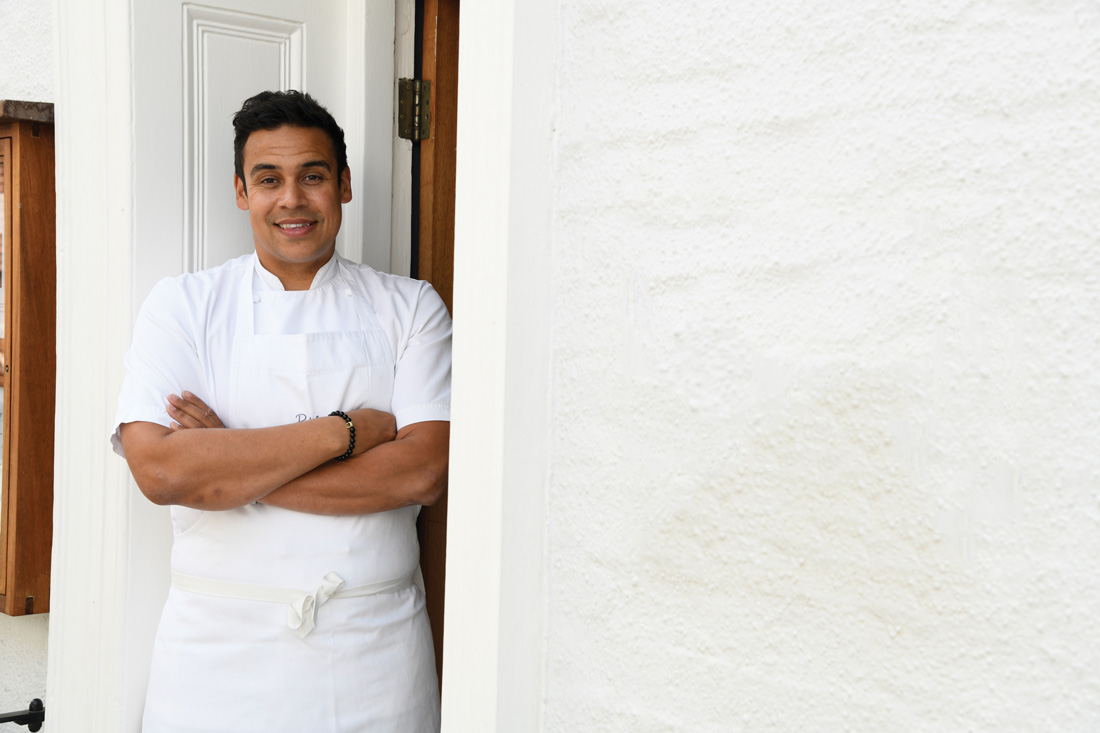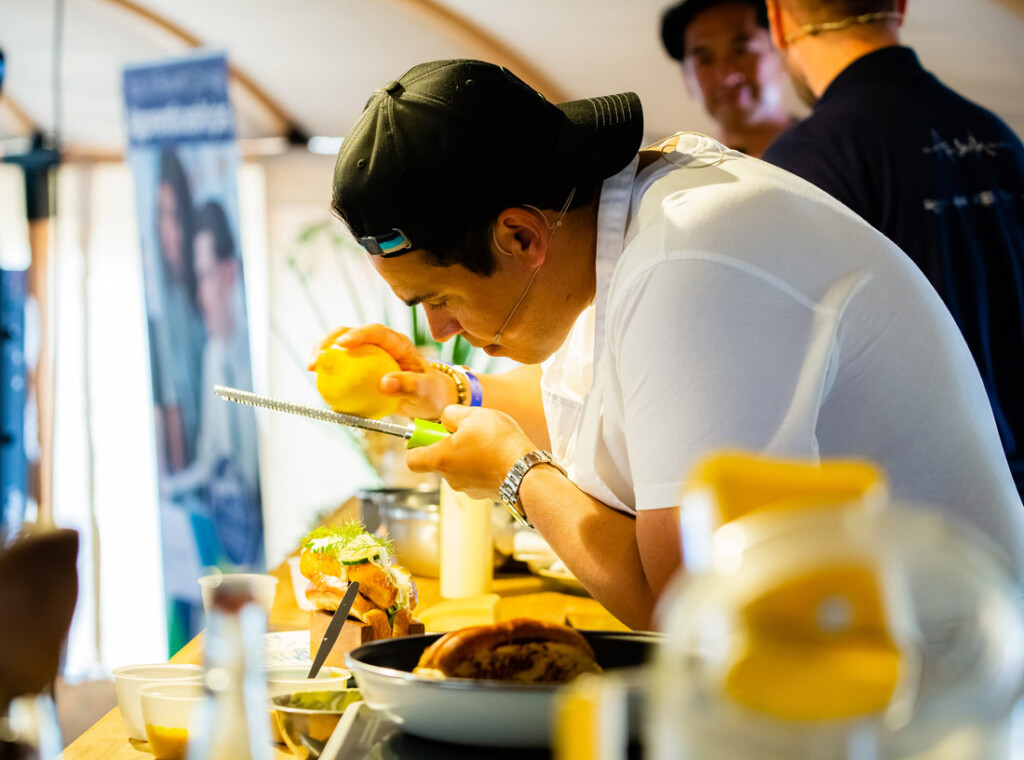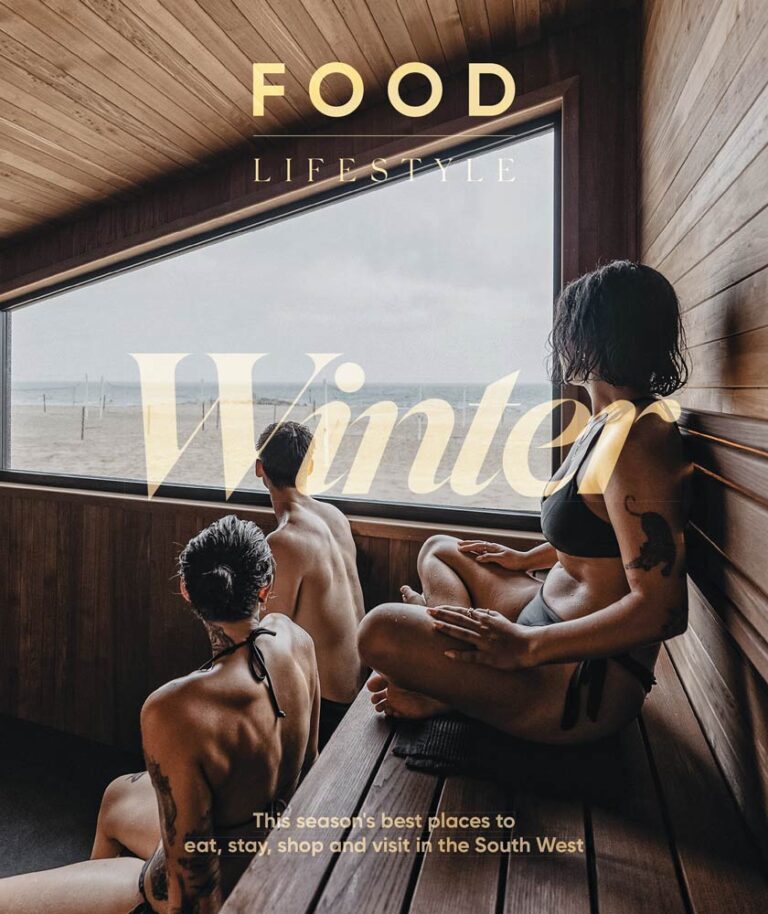Paul Ainsworth: talkin’ bout a revolution
- Interviewed

Serious staff shortages, Brexit-induced ingredient issues and a frantic summer of staycations has left Paul Ainsworth, like most South West chefs, almost on his knees. Yet, despite the difficulties, the ebullient chef thinks the post-pandemic shake-up will make hospitality a better place to work and provide great opportunities. Jo Rees got the low-down
Paul Ainsworth is no stranger to hard work. However, summer 2021 was on a different scale altogether as he juggled the reopening of his five Cornish businesses, hosted Rock Oyster Festival, put on three Travelling Feast events and dealt with the post-lockdown clamour for restaurant bookings while UK kitchen staff all but disappeared.
‘Coming out of the pandemic, London isn’t busy. Service just isn’t up and running there yet, so for Cornwall to be as busy as it has been this summer is brilliant. The number of people trying to get into restaurants here is phenomenal.’
You can hear the ‘but’ coming a mile off. ‘But, obviously, the difficulty is that there’s a shortage of hospitality staff right now.’
Ah, Brexit, you’re probably thinking.
‘It’s down to a lot of different reasons. For us it’s not so much Brexit, although that’s making it difficult to source certain ingredients such as soy sauce and specialist produce like caviar. I think the massive staff shortages are because there’s been a change of mindset in the industry.
‘We went to a national recruitment agency to find staff for Caffè Rojano and The Mariners, and the agent said people were telling them they were getting out of hospitality.
‘Some hospitality businesses let many people go even before furlough was announced, while others made their staff redundant and then tried to re-employ them on less favourable terms. I think people just thought there’s no real security in my job, no loyalty.
‘We had 147 people on furlough and a lot of them were the sole earners for their families, so our goal was to get everyone back to work as soon as possible and to protect the team.’
Paul and his wife (and business partner) Emma are clearly proud of being good employers and looking after their staff, but the stress must have been considerable.
‘It was a scary time going into lockdown. We’d just taken on a huge amount of debt in order to buy the freehold for Caffè Rojano, and completed a big refurbishment of front of house, so we were cash stretched and waiting to kick off the season after winter. It came at the worst possible time for us.
‘Now, because of staff shortages, Caffè Rojano is closed on Tuesdays and Wednesdays just to make sure the team don’t get worn out. It’s challenging.’
You’d imagine Paul would have a waiting list of young hospitality professionals wanting to work with a Michelin-starred chef famous for his TV work and high-calibre reputation. What’s going on?
‘Lockdown gave people a lot of time to wonder if they really wanted to be in a job where they finish at midnight. They don’t want to work unsociable hours.
‘I remember when I told my dad I was going to be a chef. He said to me, “Paul, you’re going to be working when your mates are having a good time. Do you get that?” And I was like, “Yeah, I get it”. And I did it. But it’s different now; so much has changed.’

So people aren’t seizing the opportunity to ditch London to work in sunny Cornwall?
‘Not massively – because if they move to work in hospitality somewhere like Padstow there’s nowhere for them to live.
‘Emma and I have five staff houses – four we’ve bought and one we rent – and without them we couldn’t keep going. So many of our team are from outside Cornwall and just wouldn’t be able to find a rental in season – or at less than the thousands-of-pounds-a-week going rate that holiday homes command.
‘But I’m always glass half full about stuff like this. I keep saying to people that we’ve just gone through something you only see once in 100 years.’
So what’s the key to getting the South West’s hospitality industry back on its feet?
‘I think that, at some point, the cost of living is going to dramatically rise, as will inflation. Then people will see there’s great money to be had in hospitality and I think that’s what’s going to get people back in the industry.
‘It used to be that Cornwall was only busy when the kids were off school, but that’s not the case now. It’s busy all year round. And it’s got everything: an amazing larder, amazing people, amazing growers, suppliers, producers, farmers and fishermen. So I think this is going to be a hugely exciting time for new people coming in.
‘We’ve made a lot of mistakes in hospitality over the years. No one – and I was one of them – ever questioned how we did things. I was the guy who worked all hours. But so much is being questioned now, and rightly so.
‘When I became a chef I didn’t even think of coming to the South West. You went to London because that was where all the great restaurants were, but now we’ve got so many opportunities in the region at so many brilliant restaurants that I think if you were coming into South West hospitality now, it’s at a time when you could do really well.’
If the post-lockdown industry shake-up has led to chefs questioning the exhausting split shifts, does that mean Paul’s had a personal epiphany?
‘Yeah, because things change, people change and generations change. You never want to be the old fart waffling on about how it was in your day when you did 18-hour shifts. No one cares. What’s important now is that we make changes to the industry – and that’s not just the responsibility of the people trying to run restaurants.
‘The reason people have traditionally had to work such long hours is because the margins are so fine. It’s never been feasible to have a team for the morning and a team for the evening.’
If he could ask the readers to do something to support hospitality right now, what would it be?
‘The important thing is to educate people about the real value of food. This message is a hard one to get across because no one has to go to fine dining restaurants like Paul Ainsworth at No 6, The Seafood Restaurant or Outlaw’s New Road, but when some people do, I think they often sit down and look at what’s in front of them and that’s purely how they judge the price. You hear them at The Seafood Restaurant and they’re like, “Christ, that’s forty quid for turbot hollandaise and new potatoes” but just think how that’s got there. It’s beyond the people in Rick’s kitchen.
‘I’ve been out on a boat fishing for turbot and you know what? It’s brutal. I went out from Looe with a four-man crew and we spread five of these massive nets that stretch for three miles. But turbot are really hard to catch because they lie on the bottom and the nets skip over them. When we came back and pulled up the nets we had one monkfish and two turbot. The cost of the crew, the diesel and everything else has to be reflected in the price of the fish. Yet the restaurant industry has always been scared to charge what the real price should be.
‘I have to put that into context, because not everyone can afford to go to the sort of restaurants I’m talking about, but we can still appreciate food and the layers behind it that justify the cost. We have to get past the point where we think £4 for a chicken is expensive.’
Does he think the post-pandemic landscape will change the style of food served at South West restaurants?
‘Definitely. One big thing – and which I’m really pleased about – is that chefs are less interested in presentation now.
‘When I was coming into the industry it was all about how the food looked on the plate, whereas now you’ve got people doing pop-up cafes on the beach where they’re serving really banging grilled-lobster rolls, and delicious vegetables roasted over fire. It’s exciting.’
Share Paul Ainsworth: talkin’ bout a revolution with your friends
